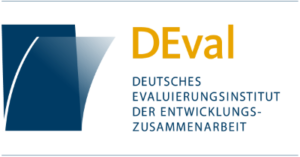Prof. Anna-Katharina Hornidge, together with Ambassador Carsten Staur, Chair of the OECD’s DAC, and Jochen Steinhilber, BMZ, discussed how public development funds can be better coordinated.

How can the countries of the OECD’s Development Assistance Committee (DAC) ensure that development finance is provided where it is most needed, and where its impact is most critical and significant – while at the same time addressing global challenges such as climate change, loss of biodiversity and political autocratisation?
Ambassador Carsten Staur, Chair of the OECD’s DAC, Jochen Steinhilber, Head of Division at the German Federal Ministry for Economic Cooperation and Development (BMZ), and Prof. Anna-Katharina Hornidge, Director of IDOS, reflected on this. In line with the event’s title „Combining Focus & Diversity: Development Aid as a Powerful Policy Tool“, the speakers discussed how public development funds can be better coordinated in order to provide resources where their impact is greatest and most significant. Anna-Katharina Hornidge pointed out that as part of the discussions on the compatibility and demarcation of official development assistance (ODA) and, for example, climate financing, the debate on the relationship between solidarity and/or self-interest motivated development cooperation has also increased again in many DAC member countries.
However, the example of the UK and the DFID-FCO merger, which was also accompanied by a drop in the ODA budget from 0.7% to 0.51% in 2022, illustrates the direct effects. Specifically, she mentioned the UK’s loss of its position as a globally perceived intellectual leader in the shaping of transregional relations, something that is problematic for the global acceptance of liberal, democratic values, especially in times of geopolitical transformation, also illustrated by the expansion of the BRICS group of states since ß1 January 2020. The outsourcing of management, auditing and other knowledge-intensive areas to profit-oriented consulting companies and thus the privatisation of the British development system also means that the taxpayer has fewer control options (reduced state accountability).
Referring to a report by the Independent Commission for Aid Impact (ICAI) from September 2023, she emphasised that the substantial loss of development policy expertise and global networks has already been noted. Against this backdrop, it is essential for the European Union and Germany, as economic regions dependent on a cooperative and liberal global order, to ensure that international cooperation for sustainable development is not treated as a niche area, either in budget negotiations at federal level or as part of an election campaign at European Union level.
The expert discussion on ‚Development Policy‘ was organised by Prof. Jörg Faust, Director of DEval, on 29 January at the Stiftung Wissenschaft und Politik in Berlin.
Schreibe einen Kommentar